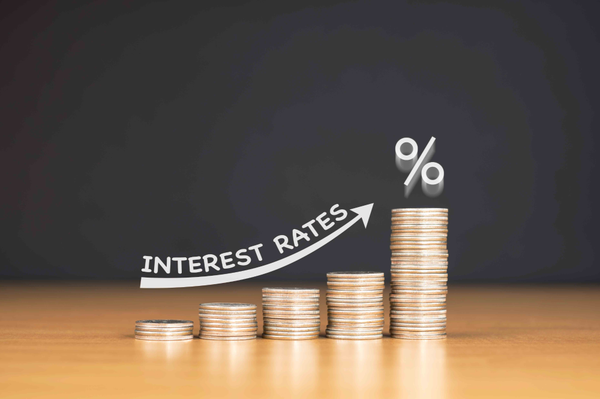7 Strategies for Picking a Professional Real Estate Agent
When it comes to buying or selling a home, selecting the right real estate agent is crucial to ensure a successful transaction. A skilled and professional agent can help you navigate the complicated process, negotiate the best deal, and avoid costly mistakes. But how do you choose the right agent for you? In this blog, we'll discuss seven essential strategies to help you pick a professional real estate agent.1) Conduct thorough research to find potential agents in your area. Check out their online presence, social media, and reviews to get a sense of their reputation and expertise. You can also ask friends, family, or colleagues for referrals.2) Choose an agent who specializes in your desired neighborhood or community. An agent who knows the area well will have invaluable insights into the local real estate market, such as the average price range, school districts, and public transportation.3) Consider the agent's level of experience. Look for an agent who has been in the industry for several years and has a track record of successful transactions. An experienced agent will be better equipped to handle any challenges that may arise during the buying or selling process.4) Make sure the agent is communicative and responsive. They should be available to answer your questions and concerns promptly and keep you updated on any developments in your transaction.5) Verify that your agent has a solid marketing plan. A good agent should have a plan in place to market your property effectively or help you find the right home in a competitive market.6) Check their licensing and credentials. It's essential to confirm that your agent is licensed and registered with the relevant state or local real estate authority. You can also check if they hold any relevant certifications or designations that demonstrate their expertise.7) Trust your instincts. Ultimately, you should feel comfortable and confident working with your agent. If you don't feel like they are the right fit for you, it may be best to look for someone else.8) Look for an agent with excellent negotiation skills. The ability to negotiate is crucial when it comes to getting the best deal in a real estate transaction. Your agent should be able to advocate for your interests and negotiate effectively on your behalf.9) Evaluate their technology and marketing tools. A good agent should be up-to-date with the latest technology and marketing tools to help you stay ahead of the competition. Ask them about their marketing strategies, such as social media, virtual tours, and online listings, and evaluate their effectiveness.10) Consider their availability and flexibility. Your agent should be willing to work around your schedule and be available when you need them. If they are not responsive or have limited availability, it could negatively impact your transaction.11) Check their references. Before selecting an agent, ask for references from past clients. A good agent should be happy to provide you with references and have a proven track record of success.12) Understand their commission structure. Before signing any agreements, make sure you understand your agent's commission structure and any associated fees. While the commission is typically negotiable, it's essential to understand the costs upfront to avoid any surprises later on.By following these strategies and tips, you can find a professional real estate agent who can help you achieve your goals. At TD Realty, we pride ourselves on our commitment to providing our clients with the highest level of service and expertise. Contact us today to learn more about how we can help you with your real estate needs. We look forward to hearing from you!
12 Must-Know Facts When Purchasing a Home
Buying a home is one of the most significant investments you'll make in your lifetime. While it's exciting to take the leap into homeownership, there are many factors to consider before you sign on the dotted line. To help you make an informed decision, we've compiled a list of 12 must-know facts when purchasing a home.
Understand Your Budget
Before you start searching for homes, it's essential to know how much you can afford. Factor in your income, debt, and expenses to determine a realistic budget for your new home.
Get Pre-Approved
Getting pre-approved for a mortgage gives you an advantage in the home buying process. It helps you know how much house you can afford and shows sellers that you're a serious buyer.
Work with a Real Estate Agent
A good real estate agent can guide you through the home buying process, helping you find the right home, negotiate offers, and navigate the closing process.
Research Neighborhoods
Location is key when it comes to buying a home. Research neighborhoods that fit your lifestyle and budget, and consider factors like schools, amenities, and transportation options.
Have a Home Inspection
A home inspection can uncover potential issues with the property, giving you the opportunity to negotiate repairs or a lower price with the seller.
Consider Resale Value
While it's important to find a home that meets your current needs, it's also essential to consider the resale value of the property in case you need to sell in the future.
Get Title Insurance
Title insurance protects you from any claims or liens against the property. It's a one-time cost that can provide peace of mind throughout the home buying process.
Budget for Closing Costs
Closing costs can add up, so it's essential to budget for them when planning your home purchase. They typically include appraisal fees, title fees, and taxes.
Understand the Mortgage Terms
Take the time to understand the terms of your mortgage, including interest rates, monthly payments, and prepayment penalties.
Factor in Homeowner's Insurance
Homeowner's insurance is required for most mortgages and can vary in cost depending on the property and location. Factor this into your budget when planning your home purchase.
Consider Additional Expenses
In addition to your mortgage payment, there are other expenses to consider, such as utilities, maintenance, and property taxes.
Don't Rush the Process
Buying a home is a significant decision, and it's important not to rush the process. Take the time to research, ask questions, and find the right home that meets your needs.
When purchasing a home, it's important to be well-informed and work with experienced professionals. Contact us today to learn more about how we can assist you in finding the right home and navigating the home buying process.Contact us today to learn more about how we can assist you in finding the right home and navigating the home buying process.
Exploring Mortgage Rates in 2023: Will They Decrease?
As we enter into 2023, many potential homebuyers are wondering what the future holds for mortgage rates. The past few years have seen some ups and downs in the housing market, and interest rates have played a significant role. So, will mortgage rates decrease in 2023? Let's explore the current state of the market and make some predictions.
Current Mortgage Rate Trends
Before we look to the future, let's take a look at where things stand now. In early 2023, mortgage rates are hovering around where they were at the end of December 2022. These rates have been relatively stable over the past year, with only minor fluctuations.The stability of current rates is due in part to the Federal Reserve's monetary policy. In 2022, the Fed indicated that it would maintain its accommodative stance on interest rates for the foreseeable future, meaning it would continue to keep rates stable to support economic growth. While the Fed does not directly control mortgage rates, its decisions can have an indirect impact.In addition, the overall strength of the economy and the housing market have also played a role in keeping rates steady. The housing market has remained strong despite the challenges of the pandemic, with high demand and low inventory driving up prices. The strength of the market has kept lenders willing to lend and has prevented rates from skyrocketing.
Predictions for 2023
So, what can we expect for mortgage rates in 2023? While no one can predict the future with complete accuracy, there are a few factors that could influence rates in the coming year.One major factor is the state of the economy. If the economy continues to grow and recover from the pandemic, the Fed may continue to raise interest rates to prevent inflation. This could lead to higher mortgage rates, as lenders adjust their rates in response to the Fed's actions.Another factor is the housing market itself. If demand continues to outpace supply, as it has in recent years, lenders may not have much incentive to lower rates. However, if the market starts to cool off and prices stabilize or even decrease, lenders may need to offer lower rates to entice buyers.Overall, the general consensus among economists is that rates are likely to stay relatively stable in 2023, but there could be some upward pressure if the economy continues to grow. Of course, there are always unexpected events that could impact rates, such as a major geopolitical event or a natural disaster.
What This Means for Homebuyers
So, what does all of this mean for someone looking to buy a home in 2023? First and foremost, it's important to remember that mortgage rates are just one factor to consider when buying a home. Other factors such as home prices, location, and your own financial situation will also play a role in your decision.That being said, if you're planning to buy a home in 2023, it's a good idea to keep an eye on mortgage rates and be prepared for some potential fluctuations. If rates do start to rise, it could impact your buying power and the overall affordability of your home. On the other hand, if rates stay low, it could be a good time to lock in a low rate and take advantage of favorable market conditions.One important step you can take as a potential homebuyer is to get pre-approved for a mortgage before you start house hunting. This will give you a better sense of your buying power and help you stay within your budget. Additionally, working with an experienced real estate agent can help you navigate the complexities of the market and find a home that meets your needs and budget.In conclusion, while no one can predict the future of mortgage rates with complete certainty, it's likely that rates will stay relatively stable in 2023, but there could be some upward pressure if the economy continues to grow. As a potential homebuyer, it's important to keep an eye on mortgage rates and be prepared for potential fluctuations. Getting pre-approved for a mortgage and working with an experienced real estate agent can help you navigate the market and find a home that fits your needs and budget.Ultimately, the decision to buy a home in 2023 should be based on your personal circumstances and goals. If you're in a strong financial position and you're ready to take the plunge, it could be a great time to buy a home. But if you're not quite ready or if you're unsure about the market, it's okay to wait and continue saving for a down payment.In any case, the real estate market is always changing, and it's important to stay informed and make decisions based on the latest information. By keeping up with the latest trends and working with knowledgeable professionals, you can make informed decisions and find the home of your dreams.
Preparing for Homebuying in 2023: What You Need to Know
If you're thinking about buying a home in 2023, it's important to start preparing now. With a few simple steps, you can increase your chances of getting approved for a mortgage and finding the perfect home for you and your family. Here's what you need to know:Get Your Finances in Order
One of the most important steps in preparing to buy a home is getting your finances in order. This means paying down debt, saving for a down payment, and improving your credit score. Lenders want to see that you have a good credit history and that you can afford to make your mortgage payments, so take the time to review your finances and make any necessary adjustments.Determine Your Budget
Before you start looking at homes, it's important to determine your budget. This includes not only the purchase price of the home but also the monthly mortgage payment, property taxes, and other expenses. Use a mortgage calculator to determine how much you can afford to spend on a home, and don't forget to factor in closing costs and other fees.Find the Right Real Estate Agent
Working with a knowledgeable and experienced real estate agent can make all the difference when it comes to finding the right home. Look for an agent who specializes in the area where you want to buy, and who has a proven track record of success. Ask for references and read online reviews to get a sense of their reputation in the industry.Get Pre-Approved for a Mortgage
Getting pre-approved for a mortgage can give you a competitive edge when it comes to making an offer on a home. It shows sellers that you're serious about buying and that you have the financial means to do so. To get pre-approved, you'll need to provide documentation of your income, assets, and credit history.Start Looking for Homes
Once you've determined your budget, found the right real estate agent, and been pre-approved for a mortgage, it's time to start looking for homes. Make a list of your must-haves and deal-breakers, and be prepared to be flexible as you explore different neighborhoods and properties. Attend open houses and schedule private showings with your agent to get a better sense of what's available on the market.Make an Offer
When you've found the right home, it's time to make an offer. Your real estate agent can help you navigate this process, including determining the right price to offer and negotiating with the seller. Be prepared to be patient and to make some compromises, but also be prepared to walk away if the deal doesn't feel right.Close the Deal
Once your offer has been accepted, it's time to close the deal. This involves signing a lot of paperwork, including the mortgage agreement and other legal documents. Your real estate agent and mortgage lender can guide you through this process and help ensure that everything goes smoothly.Preparing to buy a home can be a complex and time-consuming process, but with the right preparation and guidance, it can also be incredibly rewarding. Start preparing now for your 2023 home purchase and get ready to make your dream of homeownership a reality.If you're ready to start the homebuying process, contact us today to schedule a consultation with one of our experienced real estate agents. We'll work with you to determine your budget, find the right home, and navigate every step of the buying process.Don't wait – start preparing for your future home today. Contact us now to get started!
Uncovering the 2023 Housing Market: What Home Prices Will Look Like
The 2023 housing market is expected to bring some significant changes in home prices across the United States. While predicting exactly what the market will look like can be difficult, there are several key factors that can give us an idea of what to expect.Supply and DemandOne of the most significant factors influencing home prices is the balance between supply and demand. The demand for homes has continued to outpace the supply, leading to a shortage of available homes for sale. This has caused home prices to rise steadily over the past few years, and this trend is expected to continue in 2023. As more and more people look to buy homes, the limited supply of available properties will drive up prices in many markets across the country.Interest RatesAnother factor that will play a role in determining home prices in 2023 is interest rates. Interest rates have been at historically low levels in recent years, which has made it easier for people to afford to buy homes. However, experts predict that interest rates will start to rise in 2023, making it more expensive to borrow money for a mortgage. This could lead to a decrease in demand for homes, which could put downward pressure on home prices.Economic FactorsThe overall state of the economy will also play a role in determining home prices in 2023. A strong economy with low unemployment rates and increasing wages will generally lead to higher home prices, as people will have more money to spend on housing. On the other hand, an economic downturn could lead to a decrease in demand for homes, which could cause prices to fall. However, experts predict that the overall economy will remain strong in 2023, which should help to support home prices.Regional DifferencesIt's important to note that home prices can vary widely depending on the region of the country you're looking in. Some markets, such as San Francisco and New York City, are known for having some of the highest home prices in the country. Other markets, such as parts of the Midwest and South, may have more affordable housing options. Factors such as the local job market, the cost of living, and the overall quality of life in the area can all influence home prices.Preparing to Buy or Sell a Home in 2023Whether you're planning to buy or sell a home in 2023, it's important to understand what the housing market may look like. If you're looking to buy a home, you'll need to be prepared for potentially higher home prices and increased competition for available properties. This means working with a real estate agent who knows the local market well and being prepared to act quickly when you find a home you like.On the other hand, if you're planning to sell your home in 2023, you may be in a good position to capitalize on the strong demand for housing. However, you'll still need to work with an experienced real estate agent who can help you price your home correctly and market it effectively to potential buyers.Overall, the 2023 housing market is likely to be a challenging one for home buyers, with rising home prices and potentially higher interest rates. However, there are still opportunities to find the right home at the right price, particularly if you're willing to be patient and work with a knowledgeable real estate agent. And if you're planning to sell your home, the strong demand for housing could make it a great time to make a move.
Ready To Find The Perfect House? Here's Everything You Need To Get Pre-Approved
Purchasing a home is an exciting and rewarding experience, but it can also be a complex and overwhelming process. Before you start searching for your dream home, it's essential to get pre-approved for a mortgage loan. A pre-approval will help you determine how much you can afford to spend on a home and give you an advantage when negotiating with sellers. In this blog post, we'll discuss everything you need to get pre-approved for a mortgage loan.Check Your Credit Score
Your credit score is one of the most important factors that lenders consider when deciding whether to approve your loan application. A high credit score indicates that you are a low-risk borrower and can qualify you for a lower interest rate. Check your credit score before applying for a mortgage loan, and if your score is low, take steps to improve it, such as paying off outstanding debts and disputing any errors on your credit report.Gather Your Financial Documents
Lenders will require several financial documents when you apply for a mortgage loan, including bank statements, tax returns, and pay stubs. Gather these documents in advance so that you can provide them to your lender quickly and avoid delays in the pre-approval process. You should also be prepared to explain any unusual deposits or withdrawals on your bank statements and provide documentation for any large deposits.Determine Your Budget
Before you start shopping for homes, it's essential to determine your budget. Use a mortgage calculator to determine how much you can afford to spend on a home, taking into account your down payment, monthly mortgage payments, and other expenses such as property taxes and homeowner's insurance. Knowing your budget in advance will help you avoid falling in love with a home that is outside of your price range.Shop Around for Lenders
Not all lenders are created equal, and it's essential to shop around to find a lender that is right for you. Look for a lender that offers competitive interest rates, flexible loan terms, and excellent customer service. You may also want to consider working with a mortgage broker, who can help you find the best loan options from multiple lenders.Get Pre-Approved
Once you've chosen a lender, it's time to get pre-approved for a mortgage loan. During the pre-approval process, the lender will review your financial documents, credit score, and other factors to determine how much you can borrow and what interest rate you qualify for. Once you're pre-approved, you'll receive a letter from the lender that you can show to sellers to demonstrate that you're a serious and qualified buyer.Maintain Your Financial Stability
Once you're pre-approved for a mortgage loan, it's essential to maintain your financial stability. Avoid making major purchases or taking on new debt, as this can impact your credit score and debt-to-income ratio. It's also important to continue making on-time payments on your current debts and to avoid late payments, which can hurt your credit score and make it harder to get approved for a mortgage loan.Be Prepared to Provide Additional Documentation
Even after you're pre-approved for a mortgage loan, the lender may require additional documentation or information. Be prepared to provide this information promptly to avoid delays in the loan process. You should also be prepared to answer questions about your income, employment history, and other factors that can impact your ability to repay the loan.In conclusion, getting pre-approved for a mortgage loan is an essential step in the home-buying process. By checking your credit score, gathering your financial documents, determining your budget, shopping around for lenders, getting pre-approved, maintaining your financial stability, and being prepared to provide additional documentation, you can increase your chances of getting approved for a mortgage loan and finding the perfect house for your needs. Remember, a little preparation and planning can go a long way.
Has Interest Rates Caused The House You Want To Be Too Expensive? Here's What You Can Do
Most of us have been looking forward to the day we can finally purchase a house. Maybe you've been saving for years, and everything is going smoothly. Or you've just realized that the dream of home ownership is further than ever, thanks to skyrocketing interest rates. But it's not all bad news! You still have some options to get your mortgage in your budget — and for less than you think.The rise in mortgage ratesOver the past few months, interest rates have risen to their highest point in 2 years. This news is no surprise to most people. Yet many need to learn that this is one of the most significant factors behind the increase in home prices. Interest rates affect more than just how much you borrow — they also affect how much your loan costs and your total monthly house payment.The good news is that you can still find a mortgage that fits your budget and your particular financial situation. There are many options for obtaining an interest rate reduction, including refinancing, home equity loans, and decreasing the principal balance on your existing loan.Step 1: Determine what kind of loan you're looking forThe best way to start this process is to determine what kind of loan you'll most likely qualify for since lenders offer different types of loans with additional advantages. Once you know this, you can start by looking at available mortgage rates in your area.Homeowner's interest ratesIf you're looking for a new loan to buy a home or refinance a current loan, you're likely looking at an owner's interest rate. This is the interest you will have to pay to the bank or lender on the money they lend you. The owner's interest rate depends on credit scores, income, and other financial obligations. When you apply for a loan, your lender will decide whether or not you qualify and offer you a quote based on the rate they can offer.Mortgage rates change often, so check to see how much you could save by refinancing. Interest rates are also affected by the economy, so if the economy is strong and your financial situation appears stable, it's worth looking into a refinance of your current mortgage to save money.Conclusion A mortgage's average interest rate is between 6.000% and 8.000%. However, many options are available to help you get the best deal possible. If you're looking for a new home or need to refinance your current loan, consider contacting a mortgage broker or lender to get the lowest rates possible.Shopping around can be difficult if you need to know what to look for in terms of interest rates, fees, and other underlying fees associated with your loan.
Why Real Estate Is A Great Tool To Help You Acquire Long Term Wealth
For most people, "real estate" is one of the first things they think of when they think about building wealth. Buying a home is, after all, one of the most significant financial investments most people will make in their lifetime. Having a property worth what you originally paid for it, plus appreciating value over time can certainly help build wealth for you. However, real estate investment—and buying real estate—is about so much more than just owning homes. Learn about real estate's benefits and how it can help grow your net worth. Investing in real estate can be an effective tool to create substantial wealth. Understanding the benefits of investing in real estate is essential to come up with a plan that is right for your goals and situation.Rental IncomeOne of the most apparent reasons many people like investing in rental properties is that it provides monthly income. You can acquire property, collect rent, and have enough left each month to pay the mortgage, taxes, and maintenance costs. This will enable you to use some of your income for other expenses or invest more if you choose. If you are looking for passive income to help you reach your financial goals, then rental properties could be your solution.Opportunity for Capital GainsA second obvious benefit to investing in rental properties is the potential for capital growth. Just as stocks can produce gains over time, so can rental properties when you hold them long enough. As inflation continues, your purchasing power increases, and the money you can collect from rent each month. This increase in purchasing power enables you to capitalize on capital gains if you decide to sell your property at a later date. It's important to keep a close eye on rental rates and ensure they stay within what is necessary for an adequate return on investment. Building for the FutureAnother benefit of investing in real estate is that it builds a solid foundation for the future. When you buy rental properties, you create a lasting asset that can support you through many future earning years. As long as you own your property, more income will be available to pay down the mortgage and help you during retirement. Long-term rentals are protected by your state's common interest community laws and federal tax laws. Your investors will not be liable should anything happen to your property and will receive whatever is owed according to the contract they signed with you.Investing in real estate can help you reach your financial goals by building upon your assets and creating sustainable income over time. Whether you are looking for pay to live off of or capital gains for future growth, this tool could work for you. Real estate investing can be a great way to build wealth.
A Buyer's Checklist: Everything You Need To Bring To Closing
Closing on a new home is an exciting time, but it can also be stressful. There are many things to keep track of and prepare for, and it's important to make sure you have everything you need to bring to closing. Here is a buyer's checklist to help you ensure that you have everything you need:Government-issued ID: You will need to bring a government-issued ID, such as a driver's license or passport, to closing. This is to verify your identity and ensure that you are who you say you are.Cashier's check or wire transfer: You will need to bring a cashier's check or wire transfer to cover the remaining balance of the purchase price. Be sure to confirm the amount with your lender or attorney beforehand, and bring a receipt to closing.Proof of homeowners insurance: You will need to bring proof that you have purchased homeowners insurance to closing. This is to protect your new home and your investment.Closing disclosure: Your lender will provide you with a closing disclosure that outlines the final terms of your mortgage loan, including the interest rate, closing costs, and other fees. Be sure to review this document carefully before closing.Homeowner's association documents: If the property you're buying is part of a homeowner's association (HOA), you will need to bring the HOA documents to closing. This will include the bylaws, covenants, conditions, and restrictions (CC&Rs), as well as any other relevant HOA documents.Original copy of the purchase contract: You will need to bring the original copy of the purchase contract to closing. This will be the document that you signed when you made the offer on the home.Proof of funds for closing costs: You will need to bring proof of funds to cover the closing costs associated with the purchase. These costs may include things like appraisal fees, inspection fees, title search fees, and attorney's fees.Power of attorney (if applicable): If you are unable to attend the closing in person, you may need to bring a power of attorney to authorize someone else to act on your behalf.Any other documents requested by your lender or attorney: Your lender or attorney may ask you to bring other documents to closing, such as your tax returns or pay stubs. Be sure to ask them what they need and bring everything they ask for.Moving and utility plans: You will want to bring your moving and utility plan with you to closing. It will help you to coordinate your move and ensure that you have your utilities turned on when you move in.Pest Inspection Report: If your purchase contract requires a pest inspection, you will want to bring the report with you to closing.Homeowners association documents: If the property you're buying is part of a homeowners association (HOA), you will need to bring the HOA documents to closing. This will include the bylaws, covenants, conditions, and restrictions (CC&Rs), as well as any other relevant HOA documents.By bringing all of these items to closing, you can ensure that the process goes smoothly and that you are able to take ownership of your new home without any delays. Remember, it's always best to check with your lender or attorney to confirm what they need and ask any questions you may have.In addition, it is important to remember that closing can be a long and detailed process, so it is highly recommended to take a final walk-through of the property before the closing day to ensure that everything is in order, and any agreed-upon repairs or upgrades are made by the seller and that the property is in the same condition as when you last saw it. This will give you peace of mind and ensure that there are no surprises on closing day.Lastly, it is also important to have your real estate agent present during closing, as they can help to answer any questions you may have and ensure that everything goes smoothly. They can also help to review all of the documents and make sure that everything is in order before you sign.In conclusion, buying a new home is an exciting time, but it can also be stressful. By having a checklist of everything you need to bring to closing, you can ensure that the process goes smoothly and that you are able to take ownership of your new home without any delays. Remember to bring your government-issued ID, cashier's check or wire transfer, proof of homeowners insurance, closing disclosure, homeowner's association documents, original copy of the purchase contract, proof of funds for closing costs, power of attorney (if applicable), any other documents requested by your lender or attorney, moving and utility plans, pest inspection report and homeowners association documents. And also don't forget to have your real estate agent present during closing and take a final walk-through of the property before closing day. With all these in mind, you can rest assured that your closing will be a success.
Do You Plan On Selling Your House But Can't Move Out Right Away? Try This Idea
If it's time to move, but you can't find a buyer for your current home, you may be able to do a little house hacking and stay put for the time being, and it's a technique that can help you stay afloat, therefore, making moving easier. If you stay put, you will not have to spend money on hotel rooms, extended-stay hotels, or temporary housing. Try these ideas.1. Rent-back agreement
A rent-back agreement is a pre-agreement between a buyer and seller that provides the buyer with a long-term lease of the seller's home. It is generally a short-term lease--a fixed term, for, say, six months or one year--during which the seller remains in the house and continues to pay rent on the property. After this period, there is an option to convert the rent-back agreement into a sale of the property. If you are reaching your economic crisis many and need money urgently, this can help you out because at least you will not have to rush from your current home and will have time to find a buyer. According to a real estate agent, Tim Martin, more and more people are turning to rent-back agreements, which indicates that the real estate market is improving. 2. Joint venture with the buyer
This technique involves the sale of your property with a "right to repurchase" clause. In this situation, the buyer takes the property and pays rent according to an agreement you will have drawn up. At the same time, you continue to occupy it until you repurchase it later according to an agreed-upon price. Real estate agent in Dallas, Tim Martin, said, "Make sure that you have a formal agreement with the buyer before the transaction is written and signed. In this case, ensure you are protected should they want to back out of the agreement. Make sure to consult an attorney for a referral before taking this step."3. Borrow from your home equity
Many homeowners use their home equity loans to make ends meet during tough times, and some of these loans offer a quick way to stay in place after you've moved out. Real estate agent in Dallas Tim Martin said, "I have seen several clients who were able to leverage their home equity to increase the value of their homes and still be able to afford monthly payments."4. House hacking
This technique creatively uses home furnishings and decorations to turn a vacant or unfinished house into a home while you stay put. Real estate agent in Dallas, Tim Martin, said, "I have seen clients make their houses into offices by turning unfinished basements or converted attics into large offices. I also have seen clients with out-of-town property owners who wanted to rent their property back from them for an extended period so that they could remain in the house temporarily.
If you're thinking of selling your house but can't move out right away, don't let that hold you back from putting your home on the market. Contact your local real estate agent today, who can help you explore your options and find the best solution for your unique situation. Don't wait, the market is always changing, and the sooner you put your home on the market, the better your chances of finding the right buyer and getting the best price for your property.
Offer Accepted: 11 Steps From Offer To Final Walkthrough
You've found your dream home and made an offer. The seller has accepted, and now it's time to move forward. Here are 11 steps from the offer to the final walkthrough that will help keep the process running smoothly.
1. The closing process begins: Plan for the big picture
If the seller accepts your offer, you should know what steps you should take at different times. Knowing where to start is typically the most challenging part. Once you know the steps, plan to keep track of each requirement for closing so you can complete them quickly and move on to the next one.
2. Submit documents and answer requests from the lender
If your offer is accepted, the next step is to submit all required documents to the lender. This includes your tax returns, W-2s, bank statements, and pay stubs.
3. Shop for title insurance and other closing services
When you're ready to buy, there are a few things you'll need to take care of first. Title insurance is one of these things because it protects you from any legal issues that may arise with the property's title.
4. Schedule a home inspection and negotiate concessions for any issues
After the seller has accepted your offer, you're now in the due diligence period. A home inspector will look for all property issues that could be costly to repair.
5. Get the appraisal report
The appraisal report is an essential step in the home-buying process. It will give you an estimate of the value of the home you are interested in purchasing.
6. Shop for homeowner's insurance
Now that you have an accepted offer on your home, it's time to start shopping for homeowner's insurance. This is a crucial step in home-buying because it protects you and your home from potential risks.
7. Look out for revised loan estimates
If your loan estimate is revised, it's important to understand why. Sometimes, revisions are due to changes in the market or updates to the home's value. Other times, though, a modification can be cause for alarm.
8. Take the final walkthrough
Once your offer has been accepted and you're under contract, the next step is the final walkthrough. This is an inspection of the property to confirm it is in good condition and that all agreed-upon repairs have been made.
9. Review documents before closing
Make sure to review all documents before closing. This includes the sales contract, disclosures, loan estimate, title insurance policy, and more. It's important to understand these documents before signing on the dotted line.
10. Close the deal and get the keys to your new home
Once your offer is accepted, you'll work with your real estate agent to finalize the contract. This will include going over the details of the sale, such as the purchase price, closing date, and any contingencies in place.
11. Save and file your documents
When you purchase a home, you'll need to keep a copy of the purchase agreement, deed, and promissory note in a safe place. You'll also want to keep the deed of trust or mortgage safe.In conclusion, the most important thing to remember when closing on a new home is to be prepared for anything. Having a flexible attitude and being able to respond quickly to any delays will help ensure the process goes as smoothly as possible.
Fun For The Whole Family: Fort Worth Museum of Science and History
The Florida Worth Museum in Texas is a fantastic destination for families looking to explore and learn about the rich history of the region. Located in the heart of Fort Worth, this museum offers a wide range of exhibits and activities that are sure to capture the attention and imagination of visitors of all ages.
One of the highlights of the Florida Worth Museum is the "Living History" exhibit, which takes visitors on a journey through time and showcases the daily lives of people from various eras. From early Native American settlements to the Wild West and beyond, this exhibit brings history to life through interactive displays, authentic artifacts, and costumed interpreters. Kids will especially enjoy the chance to dress up in period clothing and participate in hands-on activities like churning butter or playing old-fashioned games.
Another must-see exhibit at the Florida Worth Museum is the "Dinosaur Experience," which features life-sized replicas of some of the most impressive creatures to ever roam the earth. From towering T-Rexes to small but mighty velociraptors, this exhibit will delight dino lovers of all ages. Kids can even dig for "fossils" in the excavation pit and learn about the latest discoveries in paleontology.
But the Florida Worth Museum isn't just about history and science - it also has plenty of art and culture to discover. The museum's art collection includes works by famous artists like Monet and Renoir, as well as contemporary pieces by local artists. The museum also hosts a variety of events and workshops throughout the year, including art classes, music performances, and literary readings.
Overall, the Florida Worth Museum is a fantastic destination for families looking to have fun and learn something new. With a wide range of exhibits, activities, and events, there's something for everyone at this vibrant and educational institution. So if you're in the Fort Worth area, be sure to pay a visit to the Florida Worth Museum - you won't be disappointed!
A Room by Room Guide To Staging A House
Staging is a process that involves arranging furniture and personal belongings in a way that highlights the home’s best features while minimizing its negative aspects. The result is a home that feels cozy and inviting – not one that makes potential buyers cringe with its dated and cluttered look. In today’s market, homes need to stand out if they want to see potential buyers. Even though staging your house doesn’t cost much, it can greatly impact how quickly you sell your home and the final sales price.Declutter Your HomeThe first thing you need to do when staging your home is to declutter. This means getting rid of any items you don’t need or use, and it’s a great way to start the staging process since you’re cleaning your home simultaneously. However, don’t go overboard. Instead, focus on items that would be particularly distracting to potential buyers, such as a large bookshelf full of books, old furniture, and novelty items.Add Color to Your RoomsColor is one of the most important staging elements since it directly impacts how potential buyers view your home. Start by selecting one or two colors that will bring life to each room in your home. After that, incorporate those colors into existing furniture, or purchase new items in the same color family. You can also use decorative items, such as throw pillows, wall art, and curtains, to further brighten each room.Real Estate Agent in DallasOnce you’ve finished staging your home, you should schedule a photo shoot with a professional photographer. The best times to schedule photo shoots are either early in the morning or late in the afternoon. Avoid scheduling photo shoots during the middle of the day since the harsh sunlight can create unwanted shadows and glare. Showcasing Your Home`s Best Feature(s)After decluttering and adding color to your rooms, the next step is to showcase the home’s best feature(s). Focus on a single room in each home and try to highlight that area in the best way possible. You can do this by removing pieces of furniture from the room or by changing their position to draw attention away from other parts of the room.Adding Light and BrightnessAs you go through the process of staging your home, it’s important to make it as light and bright as possible. To do this, turn off any overhead lights in the home, and open the blinds or curtains to let in as much light as possible. To create a clean and clutter-free space, you should also remove any unnecessary furniture from the room, such as lamps and bookshelves. You want potential buyers to feel relaxed as they walk through the home.Installing Staging PiecesYou should install staging pieces if you need to fill empty spaces in a room. These are items such as large plants and decorative artwork used to fill the space. Staging pieces also help reposition furniture and make a room appear larger than it is. Install staging pieces in rooms that appear too empty to draw attention away from the space simultaneously.
At the end of the week, review the progress you’ve made. This will give you an idea of how the staging process is going and whether you’ll be able to finish in time. If any items on your to-do list aren’t finished, re-prioritize the list or find additional help to finish the work. Once the house is staged, make sure you continue to maintain it. This will ensure that it remains attractive to buyers even after the staging period ends.
4 Ways To Ring In The New Year in Fort Worth!
It's that time of year again. The holidays are over, and a new year is just beginning. Look no further if you're looking for ways to ring in 2023 in Fort Worth. From family-friendly activities to adult-only fun, there's something for everyone in this great city. Here are four ways to celebrate the new year in Fort Worth.The Fort Worth Zoo's New Year's Eve Celebration
The Fort Worth Zoo is ringing in the New Year with a special event. The zoo is hosting a New Year's Eve celebration with live entertainment, food trucks, and a beer garden this year. The event will be held from 5 pm to 9 pm on December 31st.DJ So4kis will provide live entertainment for the evening, and there will be food trucks on-site selling a variety of cuisines. The beer garden will feature local breweries, and a cash bar will be available for those 21+. Tickets for the event are $15 per person and can be purchased online or at the door.New Year's Eve at the Kimbell Art Museum
As the clock ticks down to midnight on New Year's Eve, the Kimbell Art Museum will host a special event to help you ring in the new year. From 9 pm-1 am, guests can enjoy live music, dancing, and a champagne toast at midnight. There will also be a special exhibition of New Year's Eve-themed art displayed throughout the evening. So if you're looking for a unique and cultured way to celebrate the start of 2020, head to the Kimbell Art Museum for an unforgettable night.The Fort Worth Symphony Orchestra's New Year's Eve Concert
The Fort Worth Symphony Orchestra's New Year's Eve Concert is a great way to ring in the new year. The concert will feature a wide variety of music, from classical to pop, and will surely excite you for the new year. The orchestra will perform at Bass Performance Hall, one of the best venues in Fort Worth. Tickets are still available, so be sure to get yours today.New Year's Eve at Sundance Square
If you're looking for a New Year's Eve celebration that's a little more low-key than the typical party scene, head to Sundance Square in downtown Fort Worth. The annual event features live music, food and drink vendors, and fireworks show at midnight. Best of all, it's free to attend.There are plenty of ways to ring in the New Year in Fort Worth. Whether you're looking for a family-friendly event, something active or outdoorsy, or just a good old-fashioned party, there's sure to be something for everyone. So grab your friends and loved ones and get ready to celebrate the start of 2023 in style. Cheers.
Have You Heard Of A Seller’s Disclosure? Here’s Why It's Impactful
A seller’s disclosure is a document that provides information about the property being sold. This includes any known defects or problems with the property. As a seller, it’s important to be as upfront and transparent as possible about any issues with the property. Buyers have a right to know about potential problems before making an offer on the home. Not disclosing any known issues could come back to hurt you later.
Why is a Seller’s Disclosure Important For Buyer?
A seller’s disclosure is important for buyers because it provides them with key information about the property they are interested in purchasing. The disclosure can include information about any potential defects or problems with the property, which can help the buyer make an informed decision about whether or not to proceed with the purchase.
In some cases, the seller’s disclosure may also include information about certain repairs or improvements that have been made to the property. It can be helpful for buyers who are looking for a home that is move-in ready and does not require any additional work.
Overall, a seller’s disclosure is an important tool for buyers navigating the real estate market. It can provide important details about a property they might not be aware of and help them make an informed decision about their purchase.
Why is a Seller’s Disclosure Important For Seller?
When you’re ready to sell your home, one of the first things you’ll do is sign a seller’s disclosure. This document is important because it protects both you and the buyer. The disclosure outlines any known issues with the property, which allows the buyer to back out of the deal or negotiate a lower price if there are significant problems. For sellers, disclosing potential issues upfront can help avoid legal trouble.
How a Seller’s Disclosure can Impact a Home Sale
As a home seller, you are required by law to provide potential buyers with a disclosure form that outlines any known material defects with the property. This is important because it allows the buyer to back out of the sale or negotiate a lower purchase price if they feel the defects are too costly to fix.
While most sellers are honest about disclosing defects, some try to hide them in hopes of getting the full asking price for their home. But this is not only unethical, but it's also illegal. If a buyer discovers hidden defects after closing the property, they can sue the seller for fraud.
While the seller’s disclosure is not required by law in all states, it is highly recommended that sellers provide one to buyers. In some states, failure to disclose certain information may result in legal action from the buyer.
If you are selling a property, consult with your real estate agent or attorney to determine what information needs to be included in your seller’s disclosure. Buyers should also request a copy of the seller’s disclosure from their agent before making an offer on a property.
5 Ways To Maximize The Profit Of Your Home Without Breaking The Bank
To get the best price for your home, you must make it stand out. As real estate markets adjust to the economic effects of the Coronavirus and rising interest rates, doing everything you can to maximize the value of your home is critical.However, this effort can involve several actions, including working with a real estate sales agent who is knowledgeable about the local market or investing cash in vital changes and repairs that will persuade buyers to pay more than the asking price. Here are some tips for selling your house for more money without spending more than you intended.
Set the Appropriate Price
The most crucial choice you will make when selling your house is picking the right price. If you set your price too high, you run the danger of losing every client in the market; if you place it too low, you can incur some losses. Therefore, you should base the price of your property on recent sales of comparable properties. In such a situation, having a knowledgeable agent who understands the market and how homebuyers respond is essential.
Advertise Your Home Online
By advertising your home online, you'll have the advantage of reaching a wider audience and attracting more prospective buyers. Utilizing internet platforms can also provide information about your market. Therefore, it's critical to upload high-quality photographs to showcase your house in the best way possible to prospective buyers.
Make Any Required Repairs
When trying to sell a house, clients will conduct an inspection and likely see any problems and recommend the required repairs. Nobody would like a deal to fall because of an issue the homebuyer can't take, so you'll either have to fix it, give the customer a refund, or lower your asking price to make up for it. Therefore, doing the necessary repairs before selling your home is critical as it also helps you maximize your profit!
Clean Up Your Home and Get Rid of Anything Unnecessary
If your house is a mess, it can be difficult for buyers to imagine themselves living there. However, making your home appear welcoming will impress potential buyers and allow it to sell quickly at the best price. Therefore, cleaning your house thoroughly and removing any unnecessary items before hosting a house show is essential.
Improve Your Curb Appeal
Most of the time, we only have one opportunity to create a first impression, and making low-cost cosmetic changes to the exterior of your property can have a considerable impact. Simple touches like fresh paint or well-kept landscaping create a welcoming environment and bring aesthetic attractiveness to your property, making it sell for more money.Selling a property can be more difficult, especially if you're on a tight deadline. However, knowing the most crucial details can assist you in selling your house quickly and for the highest possible profit.
Home Improvement Projects That Are Actually Worth It
One of the benefits of owning a home is being able to remodel it in a style you like. Yet, you may be unsure about which changes are worthwhile. Many factors to consider when renovating your home include how much value each remodeling project will bring when you plan on selling your home and which project will fit your lifestyle the most. Here are a few worthwhile home improvements that real estate agents in Dallas may recommend to get the most out of your home improvements.Kitchen RemodelThe kitchen is the space that adds the most value to your home. A new kitchen can significantly increase its value, so do not underestimate the importance of this space. The kitchen is the first room that new homebuyers are interested in, so that is where they usually start making their judgments when entering your home. They may look at other properties if they do not like what they see.A kitchen renovation, or a modest makeover, will pay off by increasing the value of your home. You can do this by simply painting the cabinets, replacing the hardware, improving the lighting, and possibly updating the backsplash.Bathroom RemodelA minor bathroom renovation can significantly add value to your home. Unfortunately, bathrooms are frequently one of the most overlooked areas in a home. Consider updating the shower or bath, the walls and flooring, and perhaps a new sink or toilet. Many home buyers would like a luxurious, spa-like bathroom. Yet, you can easily give your bathroom a new lease on life with minimal improvements, such as new vanity lights, paint, flooring, and an improved mirror.New PaintOne of the best ways to modernize and improve the appearance of your home’s interior is with a new coat of neutral paint. Neutral color paint can significantly change the appearance and atmosphere of a space. If you are putting your home on the market, go with neutral hues, but if you intend to stay for a while, do not be afraid to use your favorite colors.New FlooringReplacing or updating the flooring can breathe new life into your house, especially in areas that show wear and tear. Additionally, new floors can be a significant advantage for buyers if you are considering selling. Therefore, you should consider the most popular style of flooring among consumers to see how it can improve your home’s value.Remodel the GarageYou may never have thought about remodeling the garage. However, it is a space people like to use to store their belongings and still have enough room to park one or more vehicles. Garages are excellent multipurpose spaces, so consider expanding the garage workshop, adding shelving for storage, or making more room for cars.Other ideas include: • Getting a new front door • Landscaping the yard • Creating a backyard oasis • Getting new window treatments • Creating a home office space These projects will add value and enhance the curb appeal of your home.
What Is The Biggest Barrier To Getting A Mortgage Now? Let's Find Out!
Many Americans hope to own a home someday. Yet, it is becoming more difficult as mortgage rates continue to rise. As a result, many prospective buyers looking for homes for sale in Dallas believe it will be difficult for them to get approval for a mortgage. Yet, there are ways you can be better prepared to cut through all the red tape if you are aware of the challenges you will encounter when trying to obtain a mortgage.High Home PricesHigh home prices are among the most significant barriers to getting a mortgage today. Home prices have increased dramatically in recent years, reaching record highs in many markets. As a result, you will need to take out bigger loans to purchase a home. In addition, you may be unable to get a mortgage since these loans require a higher income and down payment.Making an OfferPurchasing a home is a massive financial and personal decision. An essential step in making a successful offer is to get pre-approved for a mortgage loan. Without a pre-approved mortgage, you will not have a competitive edge, making you look less financially stable to sellers. Also, it will not give you an advantage over other rival buyers. In today's competitive housing market, multiple offers are common. Therefore, a pre-approval will give you the edge when purchasing a home and negotiating the final price.Down PaymentThe down payment is another significant barrier to getting a mortgage today. Unfortunately, many people lack the money to make a down payment to get a mortgage on a home. The good news is that several options will enable you to get a mortgage with no money down if you qualify. These mortgage options include VA and USDA loans. Another option is an FHA loan, a low-down payment loan where you need to come up with 3.5% down on a home. Obtaining a home loan can be a challenging task. Yet, with some clever financial planning, you can build up your savings to make a down payment.Credit Score IssuesAnother barrier to obtaining a mortgage today is a poor credit score. Lenders want to lend money to reliable borrowers who will pay it back on time. Their primary tool to assess this reliability is your credit score. Lenders primarily use the FICO score, which is a three-digit number that reflects your borrowing habits. This number determines how much a lender will allow you to borrow. Having a low credit score can increase your monthly payments and interest rates. Therefore, it is vital to shop around for the right mortgage. Checking your credit score before applying for a mortgage can help you find the best option for your needs. In addition, if you can address credit issues, like paying off your credit card debt, you can raise your score.There are barriers, but it is not impossible to get a mortgage. A little preparation can put you in an excellent position to qualify for a loan to buy a home. Talk to your local real estate agent for advice.
A Sight To "Sea": The Dallas World Aquarium
A Sight To "Sea": The Dallas World Aquarium
Explore the wonders of the underworld with a trip to the Dallas World Aquarium. Widely recognized as one of the best things to do in Dallas, this renowned aquarium will put you up close and personal with a variety of marine animals from all over the world. Here is what you need to know about a visit to the Dallas World Aquarium.Planning Your Visit: The aquarium is open daily from 8:30 am - 6 pm with the last entry allowed at 4 pm. You can purchase tickets either onsite or online. You will find the aquarium conveniently located near downtown and the West End at 1801 North Griffin Street, making it easy to work in a stop while enjoying all that Dallas has to offer. Parking is available at the two DWA Priority Public Parking lots adjacent to the facility. Cloud Forest Trek: The aquarium's latest addition is the popular Cloud Forest Trek exhibition, in operation since July 2020. This rainforest attraction features a massive LED screen that spans the exhibit, bringing together the live jungle scenes and animal exhibits native to South America. Immerse yourself in the beauty of the Columbian rainforests when you explore the Cloud Forest Trek.Other Exhibits to Discover: The Cloud Forest Trek is just the start of the fun that you will have at the aquarium. The Mundo Maya exhibit is home to creatures such as the majestic ocelots, the red-eared slider turtle, the spotted moray eel, the American flamingo, and more. Animals featured in the South Africa exhibit include the panther chameleon, the radiated tortoise, and the black-footed penguin.Moving on to the Orinoco exhibit, you will come face to face with the Ocellate River stingray, the red-backed bearded saki monkey, and a two-toed sloth. The primary aquarium is where you will go to find colorful fish, jellyfish, and more. Delights of the Borneo exhibit include the blue penguin, the tree kangaroos, and interesting birds not seen anywhere else. Grab a Bite to Eat: The aquarium is also distinguished by its many dining options, offering three full-service restaurants. The eighteen~O~one Restaurant boasts an international menu with options that highlight the reef locations from the exhibits in the Reef Room. On the third floor of the aquarium, you will find Cafe Maya, serving up authentic Tex-Mex cuisine with a view of the flamingos, the shark tunnel, and additional exhibits located in Mundo Maya. Or head to the Jungle Cafe in the Orinoco. Here you will find a mix of casual salads, pizzas, deli sandwiches, and more.Conservation Efforts: You will feel good about your trip to the aquarium when you learn about its immense conservation efforts. These efforts benefit a variety of countries, including Peru, Costa Rica, Brazil, Mexico, and Venezuela. The whole family will appreciate a day out at the Dallas World Aquarium. Do not miss this Dallas gem!
How Homeownership Can Actually Help Decrease The Impact of Rising Inflation
Costs are rising nationwide, and the topic of inflation has been making headlines throughout the media. In fact, the costs of essentials like housing, food, and utilities have seen a historic rise. This news may have you feel nervous. You may be reconsidering any major purchasing decisions. Perhaps you're wondering whether it makes sense to be looking at homes for sale in Dallas right now. Owning a home can actually provide some protection against inflation. Keep reading to discover the benefits buying a house can offer during this time of economic uncertainty. Investing in a home offers some stability against outside market forces. While other monthly expenses continue to climb, securing a fixed-rate mortgage can lock in your house payment for the next 15 or 30 years. That's one line item in your monthly budget that will remain steady. Plus, you'll no longer be subject to the whims of periodic rent increases. Continuing to rent allows your landlord to reap the advantages homeownership provides while buying a home of your own gives you a financial edge.Another benefit of buying a home is the fact that real estate provides you with a secure asset that typically outperforms the rate of inflation. Even with rising interest rates and soaring housing prices, a home that you own maintains its value. Depending upon local conditions and how long you plan to stay, your home investment could very well increase in value. Data shows that home price appreciation has consistently been higher than the rate of inflation since the 1970s. This is definitely something to keep in mind when deciding whether you should buy a home now or later. You may wonder how these patterns can play out for you. Today's real estate market is imbalanced, with demand exceeding available supply. Forecasters say this trend is likely to continue, causing home prices to keep rising. Securing your home purchase now will allow you to take advantage of this trend. Both your equity and net worth can benefit from the appreciation of your home's value. Homeownership has proven to be a strong investment over the past several decades. It's possible you could actually earn a profit on your home when you're ready to sell, giving you the downpayment on your next home or the funds you need for some other life goal. That's peace of mind and a monetary return you can't get as a renter.Hopefully, this information has helped you to see how homeownership can provide a buffer against rising inflation. Now may be the perfect time to talk to TD Realty to explore your home-buying options. Home prices are continuing to soar, and acting swiftly could benefit you even further when it comes to securing your investment.
Tanika Donnell
Phone:+1(972) 467-3232




















